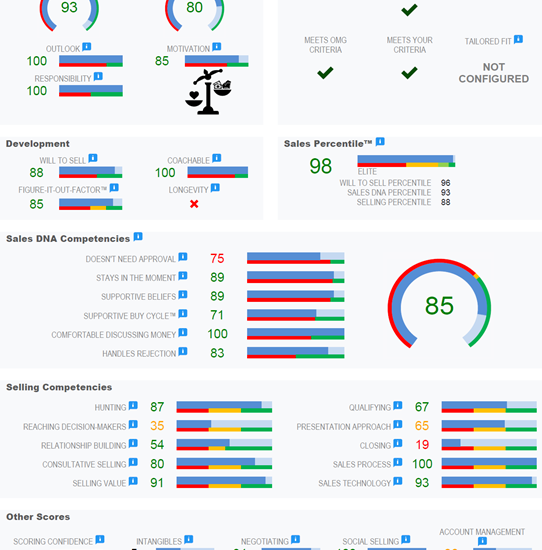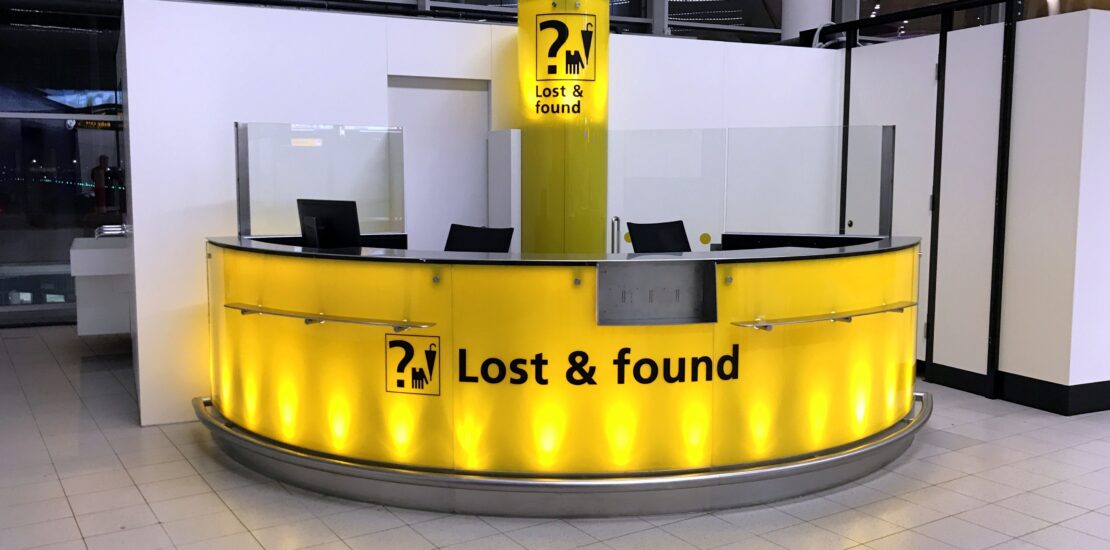personality test
-
Understanding Competency Based Assessments – What Ditch Diggers and Salespeople Have in Common!
- June 24, 2022
- Posted by: Dave Kurlan
- Category: Understanding the Sales Force

As an example, let’s say you were seeking to hire a ditch digger. While you must identify someone who is strong, can use tools and dig holes, the width and depth of the hole, as well as the difficulty of the digging is more important. Will this individual dig in sand, screened loom, compacted soil, clay, gravel, or rock? If an assessment, even one that was specific to ditch-digging, only looked at the tools they had available and their ability to dig in general, it would not necessarily identify someone who could dig monumentally huge holes in soil with large rocks.
It’s the same with a sales assessment.
-
Found! The Caliper vs OMG Comparison: Which Sales Candidate Assessment is More Predictive?
- December 1, 2020
- Posted by: Dave Kurlan
- Category: Understanding the Sales Force

Almost nine years in the making, this article compares OMG with Caliper and I did update it so that the information on both assessments is current.
I compared two assessments for the same candidate: one from Objective Management Group (OMG) and one from Caliper. Not being one to pass up opportunities like this, I conducted another comparison where OMG recommended this person for the role and Caliper did not.
-
The Difference Between OMG and Extended DISC Assessments
- October 7, 2020
- Posted by: Dave Kurlan
- Category: Understanding the Sales Force

When it comes to sales assessments, things are also not what they appear to be. For example, take the FinXS Extended DISC which, at first glance, appears to have much in common with Objective Management Group’s (OMG) Salesperson Evaluations and Sales Candidate Assessments. But are they the same, similar, or is it more like the Chinese rip-off?
Let’s take a look under the hoods of both assessments and then you can decide. We’ll begin with a comparison of the two respective dashboards.
-
Top 10 Reasons Not to Test Your Sales Candidates
- October 5, 2020
- Posted by: Dave Kurlan
- Category: Understanding the Sales Force

Testing is not only normal, it’s expected.
So why in the world is it so difficult to get Sales Leaders and HR professionals to test sales candidates?
We hear everything, including this week’s top 10 reasons for not assessing:
-
How the Correlation Between Restaurants and Covid 19 Applies to Sales Assessments
- September 17, 2020
- Posted by: Dave Kurlan
- Category: Understanding the Sales Force

But does it really matter whether this is causation? Is there that big of a difference? Is correlation enough? It depends on what you are trying to show. Let’s take sales assessments for example.
-
One Thing Your Company Must Do Right Now to Increase Sales
- May 13, 2020
- Posted by: Dave Kurlan
- Category: Understanding the Sales Force

For example, since the 30 million who temporarily lost their jobs are receiving unemployment at more than 100% of what they were earning before, they aren’t facing the hardship the media would lead you to believe and the money is there for a reboot when it comes. But the really good news is for companies that are able to hire salespeople. Consider this!
-
Applicant Tracking and Sales Candidate Assessments Fit Like Ducks Take to Water
- November 21, 2016
- Posted by: Dave Kurlan
- Category: Understanding the Sales Force

Back to the Applicant Tracking analysis. My first takeaway is that it validated what I knew only anecdotally –
that just about every mid-market and large company are using cloud-based applicant tracking systems and smaller companies are quickly moving in that direction too. It makes sense. If companies are using cloud-based job sites to source candidates, then it only makes sense that they would be integrating applicant tracking as well.My second takeaway is that with all of these companies sourcing from the cloud and tracking from the cloud, why aren’t more of them using the best sales candidate assessment in the cloud? I have 4 possible answers to that question:
-
Top 5 Keys to Select and Hire Great Salespeople in 2015
- December 8, 2014
- Posted by: Dave Kurlan
- Category: Understanding the Sales Force

I’m always amused when an email comes through with a message that says something like, “Maybe we should target candidates that aren’t recommended” or “Why do so many candidates lack Commitment?” or “Your assessments are only recommending 1 out of every 5 candidates!” or “The questions don’t fit the role!” or “Thanks for saving us so much time – we would have hired some of these losers last year!”
I can usually determine, just from the comment of the email, exactly who, by title, must have sent it to us. Here are some funny examples:
-
Keys to Improved Sales Performance – Part 2 of 4
- September 3, 2014
- Posted by: Dave Kurlan
- Category: Understanding the Sales Force

If you are like most folks, you were away for at least part of the summer, took as many long weekends as you could, and worked fewer hours on the days you actually did work. As part of getting the work done, you deleted as many emails as you could where a reply wasn’t required and visited fewer websites and blogs.
-
What Percentage of Sales Candidates Are Hired?
- July 21, 2014
- Posted by: Dave Kurlan
- Category: Understanding the Sales Force
In very simple terms, 6% means that 20 candidates must be assessed for each one who is hired. With an overall recommendation rate of 28%, those 20 assessments will yield approximately 6 candidates who are worthy of your time. But there is much more to consider.

